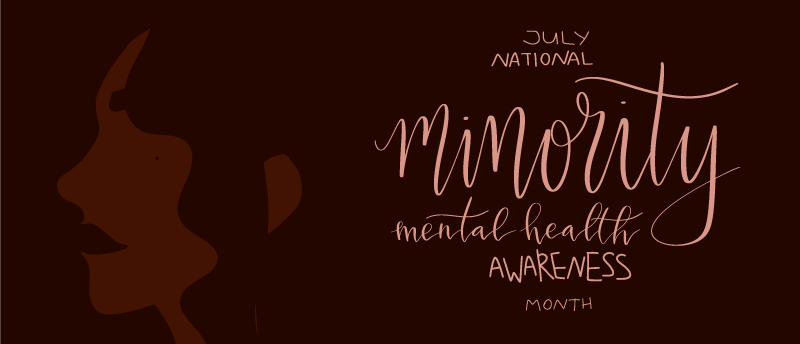July is National Minority Mental Health Awareness Month. It is a month that encourages active awareness about the barriers to appropriate mental health services, especially in vulnerable communities. Lack of insurance. Inability to secure childcare, transportation, or even the ability to take time off from work are just a few of the barriers our minority communities face.
And if they do overcome these barriers to seek treatment, they often receive inferior care due to the lack of minority mental health providers who possess a true understanding of the different mental health needs across minority groups.
In this recent article in Scientific American, Mental Health Care Should Be Available for all, Not A Luxury, author Sarah Sloat explored what this lack of understanding means for minority communities when it comes to their treatment for mental health issues. For example, studies show that because of longtime racialized diagnostic biases, Black Americans are more likely to be misdiagnosed with schizophrenia than white Americans.
Current research also suggests that poor mental health care and lack of access to quality care contribute to overall adverse mental health outcomes, higher treatment dropout rates and increased suicides in minority communities.
The recent pandemic has placed many vulnerable individuals under a greater degree of stress. Unmanaged stress leads to significant complications mentally, physically and emotionally in minority communities.
Stigma is another factor that prevents many people from seeking care for mental illness. In Sarah’s article, Jeff Winton, founder of Rural Minds, an organization working to dismantle negative stereotypes around mental illness, stated that when his nephew committed suicide, neighbors suggested that Winton tell people he died from natural causes. According to Winton, “Mental health is not considered an illness. It’s considered a character flaw.”
At CGE, our goal is to do our part to increase our understanding of effectively reducing stigma around mental health care among our most vulnerable clients and communities. The clients who enter our Roots to Recovery outpatient program can depend on our staff to create a safe place, safe presence and safe path that will appropriately adapt to embrace their unique personhood and circumstances.
National Minority Mental Health Awareness Month reminds us here at Roots to Recovery of the importance of recognizing individual needs based on our clients’ ethnic and cultural backgrounds — especially when seeking treatment. Now, more than ever, we lean on the CGE trauma-informed model of care to provide quality substance use and mental health treatment to minority populations who have been systematically underserved.
•••
To learn more about the issues minorities face when seeking mental health treatment visit:
https://nursing.usc.edu/blog/discrimination-bad-health-minority-mental-healthcare/
To read the Scientific American article in its entirety, click here.

